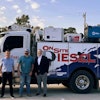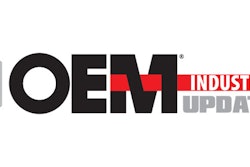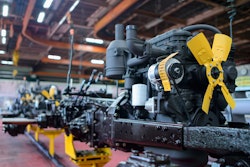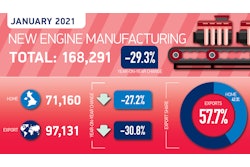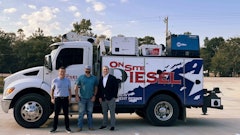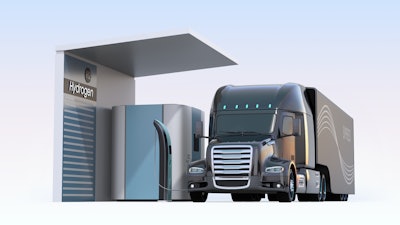
Westport Fuel Systems Inc. has announced the successful startup and initial trials of a heavy-duty internal combustion engine running on hydrogen (H2) fuel, using the company's High Pressure Direct Injection (HPDI) 2.0 System.
"We believe H2-HPDI could be extremely compelling, with near-zero greenhouse gas emissions and much lower cost than fuel cell vehicles or battery electric vehicles, particularly for heavy-duty trucking and other high-load applications like mining, marine and rail that have come to rely on the efficiency, power, durability and reliability of diesel engines," said David Johnson, CEO of Westport Fuel Systems, in the company's press release announcing the test project. "While there is more work to be done, our initial test results are encouraging and a testament to our team’s ongoing commitment to innovation. This demonstrates the inherent versatility of our HPDI system to utilize a range of gaseous fuels and provide a long-term carbon-reduction strategy. We are confident there is a larger opportunity to leverage our extensive expertise with gaseous fuel combustion and engine management systems."
"We were able to commence running at full torque and at rated power within hours of successfully starting the first ever HPDI engine operating on hydrogen," said Scott Baker, Westport Fuel Systems’ Vice President of Engineering. "Preliminary test results validate our combustion simulations, demonstrating the potential for hydrogen combustion and efficiency comparable to fuel cells in heavy-duty applications. The potential for OEMs and others to avoid new and significant investments that would be required to develop and manufacture fuel cells, electric motors and batteries that are associated with heavy-duty long haul fuel cell electric vehicle product proposals, while leveraging established supply chains, manufacturing investment and infrastructure and economies of scale, is incredibly exciting."
In February, Westport and AVL released a joint publication entitled "Total Cost of Ownership (TCO) Analysis for Heavy Duty Hydrogen Fueled Powertrains." The white paper analyzes the potential of using Westport's HPDI system for hydrogen fueled engines as a means of reducing carbon dioxide emissions in long-haul transportation.
The paper provides a comprehensive TCO analysis using Westport H2-HPDI simulations as well as AVL's existing TCO models for diesel and fuel cell powertrains.
"Our analysis shows that a high efficiency hydrogen ICE powertrain (namely H2-HPDI) can outperform fuel cell electric vehicles in terms of TCO. This is possible because H2-HPDI leverages powertrain systems in high volume production today, while achieving near fuel cell-like efficiency in heavy duty applications,” said Johnson in Westport's press release announcing the release of the white paper. "Fleets will appreciate a product that meets the same performance characteristics of today’s conventional diesel trucks without the product development risk and costs associated with fuel cells. HPDI 2.0 is already used by large fleets today, reducing CO2 by 23% with fossil LNG, and delivering net zero carbon emissions when used with bioLNG."
Development is ongoing, with technical results to be reviewed at the upcoming Vienna Motor Symposium, which takes place April 29-30, 2021.




